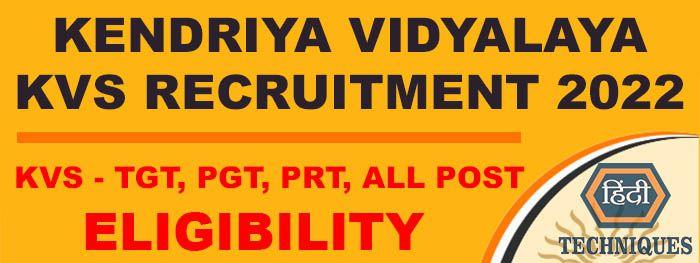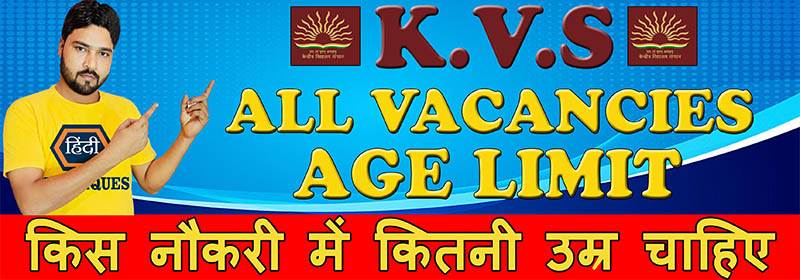Last updated on August 14th, 2024 at 06:53 pm
How to Become Deputy Collector: Are you aspiring to become a Deputy Collector in India in 2024? This prestigious administrative position comes with significant responsibilities and is a dream career for many. In this comprehensive guide, we will walk you through the journey of how to become a Deputy Collector, including eligibility criteria, qualifications, exams, and more.
How to Become Deputy Collector in India?
Becoming a Deputy Collector is a privilege in itself. That is why we have discussed about it in detail in our blog Hindi Techniques. In the last article on our blog, we told you how to find reference number of the Voter ID application. Similarly, in this article, we will tell you how you can become a Deputy Collector. So friends, let’s start the article.
Before starting the article, let us tell you that becoming a Deputy Collector is not as easy as people think. But it is not impossible either. In this article, we will make all of you aware of the entire process of becoming a Deputy Collector and will answer every question related to it. Some of which we have given below.
Related Questions.
- What is the Deputy Collector post?
- What is the role of the Deputy Collector in India?
- Is it easy to become Deputy Collector in 2024?
- How to become a Deputy Collector?
- Eligibility for Deputy Collector in 2024.
- How to prepare for Deputy Collector exam?
- Which stream is best for Deputy Collector?
- Which rank is required for Deputy Collector?
- Difference between Collector and Deputy Collector.
- Is Deputy Collector an IAS?
- What is the duty of Deputy Collector?
- Salary of Deputy Collector in india.
- How to become Deputy Collector in goa?
What is the Deputy Collector post?
The Deputy Collector is an important administrative position in the civil service of India. Deputy Collectors work at the district level and play a crucial role in the governance and administration of their respective districts. Here is an overview of the Deputy Collector post:
1. Administrative Officer: Deputy Collectors are administrative officers who are responsible for assisting the District Collector in various administrative tasks within the district. The District Collector is the highest-ranking administrative officer in the district.
2. Revenue Collection: One of the primary responsibilities of Deputy Collectors is to oversee revenue collection in their districts. They are in charge of ensuring that taxes and other revenues are collected efficiently and in accordance with the law.
3. Law and Order: Deputy Collectors are responsible for maintaining law and order within their districts. They work closely with law enforcement agencies to ensure the safety and security of the district’s residents.
4. Development Initiatives: Deputy Collectors play a role in implementing government development programs and schemes at the district level. They work to ensure that these programs are effectively carried out to benefit the local population.
5. Elections: Deputy Collectors often have a role in conducting elections within their districts. They help in organizing and overseeing the electoral process, including voter registration and polling.
6. Disaster Management: During emergencies such as natural disasters (e.g., floods, earthquakes), Deputy Collectors are involved in disaster management activities. They coordinate relief and rescue operations to protect the lives and property of the district’s residents.
What is the role of the Deputy Collector in India?
Deputy Collectors play a vital role in maintaining public welfare and ensuring the smooth operation of government offices in their district. Their responsibilities include overseeing law and order, supervising subordinate officers, resolving grievances, and collaborating with local communities and stakeholders. They also participate in activities like conducting elections and disaster management.
Is it easy to become Deputy Collector in 2024?
As of September 2023, becoming a Deputy Collector in 2024, or any year for that matter, is not an easy feat. It involves a highly competitive selection process and demanding eligibility criteria. To even be considered for the position, candidates must hold a bachelor’s degree, meet age requirements, and often, fulfill physical standards.
Additionally, they must navigate a rigorous examination conducted by the State Public Service Commission, which includes a preliminary exam, mains exam, and an interview. The sheer volume of candidates who apply for these positions adds to the challenge, making it a highly competitive endeavor.
How to become Deputy Collector?
To become a Deputy Collector in India, candidates typically need to follow a structured process that involves education, competitive exams, and fulfilling specific eligibility criteria.
Follow these steps to become a deputy collector.
| Steps | Description |
|---|---|
| Educational Qualification | Obtain a bachelor’s degree from a recognized university. |
| State PSC Exam | Clear the State Public Service Commission (PSC) exam, including prelims, mains, and an interview. |
| Eligibility Criteria | Ensure you meet eligibility requirements like age limits and citizenship. |
| Exam Preparation | Thoroughly study the syllabus, which includes various subjects. |
| Interview | Perform well in the interview stage. |
| Join as Deputy Collector | Upon successful completion, you can start your career as a Deputy Collector. |

Eligibility for Deputy Collector in 2024.
Eligibility criteria for the position of Deputy Collector in 2024 may vary slightly from state to state in India as it is governed by respective State Public Service Commissions. here is outlining the common eligibility criteria:
| Eligibility Criteria | Description |
|---|---|
| Nationality | Indian citizenship is mandatory. |
| Educational Qualification | A bachelor’s degree from a recognized university in any discipline. Candidates in the final year of graduation may also apply. |
| Age Limit | Typically between 21 to 32 years, with age relaxations for certain categories like SC/ST/OBC and ex-servicemen. Age limits may vary by state. |
| Physical Standards | Some states may specify physical fitness standards, including height, weight, and chest measurements. |
| Other Eligibility Conditions | Some states may have additional conditions related to domicile, language proficiency, or other specific requirements. |
Candidates should refer to the official notification of their respective State Public Service Commission for precise and up-to-date eligibility details for the Deputy Collector position in 2024.
What qualification is required for a Deputy Collector?
A bachelor’s degree from a recognized university in any discipline is a basic requirement for eligibility. The choice of your undergraduate field is flexible, but many candidates opt for degrees in public administration, business administration, or economics.
Physical Requirements for Deputy Collector in 2024.
Candidates aspiring to become Deputy Collectors in 2024 need to meet certain physical standards as prescribed by State Public Service Commissions.
Here’s a table summarizing the physical requirements for the Deputy Collector position in 2024:
| Category | Height (Male) | Chest (Male) (Unexpanded/Expanded) | Height (Female) | Weight (Female) |
|---|---|---|---|---|
| General, OBC, and SC candidates | 165 cm | 84 cm / 89 cm | 152 cm | Minimum 40 kg |
| ST candidates | 160 cm | 79 cm / 84 cm | 147 cm | Minimum 40 kg |
Age limit for Deputy Collector.
The age limit for Deputy Collector positions can vary depending on the specific recruitment notification and the state or organization conducting the recruitment. In general, the minimum age requirement is typically 21 years, and the maximum age limit can range from 32 to 40 years, with variations in different states and for different categories (such as SC/ST, OBC, and others) based on government regulations and notifications.
Which degree is best for Deputy Collector?
The educational qualifications required to become a Deputy Collector can vary from state to state in India. In general, a bachelor’s degree in any discipline from a recognized university is the minimum educational qualification required to be eligible for the Deputy Collector exam conducted by various state public service commissions.
There is no specific degree that is considered the “best” for Deputy Collector positions. Candidates from diverse academic backgrounds, including arts, science, commerce, engineering, and others, are eligible to apply as long as they meet the minimum qualification criteria. What’s more important than the degree itself is the candidate’s performance in the competitive examination and their ability to meet other eligibility criteria.
Is height important for Deputy Collector?
Yes, height can be important for the position of Deputy Collector, but the specific height requirement may vary depending on the state and the recruitment authority. While height is generally not as strictly regulated as it is for certain roles like the police services, there may still be minimum height requirements in some states or regions.
These requirements are typically in place to ensure that candidates can effectively perform their duties, which may include physical tasks or fieldwork.
Which exam is required for Deputy Collector?
The examination required to become a Deputy Collector may vary by country and region. In India, specifically, to become a Deputy Collector, you typically need to pass the Civil Services Examination (CSE) conducted by the Union Public Service Commission (UPSC).
The CSE is one of the most competitive and prestigious examinations in India and serves as the entry point for various civil services, including the Indian Administrative Service (IAS), Indian Police Service (IPS), and Indian Revenue Service (IRS), among others.

How to prepare for Deputy Collector exam?
Effective preparation is crucial for success in the Deputy Collector exam. Candidates should:
- Understand the exam pattern and syllabus.
- Create a study plan and allocate time to cover all topics.
- Stay updated with current affairs through newspapers and magazines.
- Refer to recommended books and study materials.
- Practice with previous year’s question papers and mock tests.
- Improve writing and communication skills for the main exam.
- Develop strong time management skills.
Which stream is best for Deputy Collector?
The choice of the best stream for Deputy Collector or any other civil services position in India largely depends on individual preferences, strengths, and interests. The Civil Services Examination (CSE) is open to candidates from diverse academic backgrounds, and there is no specific stream considered the best.
| Academic Stream | Potential Advantages |
|---|---|
| Arts and Humanities | Strong foundation in social issues and governance. |
| Science | Analytical and problem-solving skills. |
| Commerce | Knowledge of economics and financial management. |
| Engineering | Analytical skills and technical knowledge. |
| Medicine | Background in healthcare and public health. |
| Social Sciences | Insights into human behavior and geography. |
| Law | Understanding of legal and constitutional matters. |
Which rank is required for Deputy Collector?
The rank required for the position of Deputy Collector is typically that of a State Civil Service Officer (commonly known as a State PCS Officer). The Deputy Collector is a mid-level administrative role responsible for various district-level administrative tasks. In the IAS hierarchy, it is equivalent to the second rank, which is the Sub-Divisional Magistrate (SDM) or Sub-Collector.
Difference between Collector and Deputy Collector.
The terminology and roles of Collector, Deputy Collector, and Assistant Collector can vary between states in India. Here’s a generalized comparison between Collector and Deputy Collector roles:
| Aspect | Collector (District Magistrate or DM) | Deputy Collector (or Assistant Collector) |
|---|---|---|
| Rank | IAS Officer (Class I) | State Civil Service Officer (Class II) |
| Administrative Jurisdiction | Entire District | Sub-division or Tehsil within a District |
| Responsibilities | Overall District Administration | Assisting the Collector in various tasks |
| Direct Reports | Deputy Collectors, Sub-Divisional Magistrates, Tehsildars, etc. | Revenue Inspectors, Block Development Officers, etc. |
| Decision-Making Authority | High, with executive and magisterial powers | Limited, assists in policy implementation and district management |
| Career Progression | Can rise to senior positions in the IAS hierarchy | Promotion to higher administrative roles within the State Civil Service |
Is Deputy Collector an IAS?
No, a Deputy Collector is not an IAS (Indian Administrative Service) officer. While both IAS and PCS (Provincial Civil Service) officers serve in administrative roles, they hold different ranks and responsibilities within the government hierarchy. IAS officers typically hold higher-ranking positions, such as secretary, additional secretary, joint secretary, or deputy secretary, and they operate at both the state and central government levels.
On the other hand, PCS officers, including Deputy Collectors, serve at the state level and hold ranks like deputy collector, sub-divisional magistrate, or district magistrate. Additionally, IAS officers generally receive higher salaries compared to PCS officers due to the differences in their ranks and roles within the administrative system.
What is the duty of Deputy Collector?
Deputy Collectors have diverse responsibilities, including revenue collection, maintaining law and order, implementing government policies, resolving public grievances, and overseeing development schemes in their district.
Salary of Deputy Collector in India.
The salary of a Deputy Collector in India typically ranges between ₹6.4 lakhs to ₹12.2 lakhs per year, with an average annual salary of ₹8.0 lakhs. It’s important to note that this salary range can vary based on factors such as the state where the Deputy Collector is employed, years of experience, and other allowances and benefits provided by the government.
The salary package for a Deputy Collector often includes basic pay, house rent allowance, travel allowance, dearness allowance, and other allowances and perks. Additionally, the government periodically revises the salary and allowances as per its policies, so these figures may change over time.

How to become Deputy Collector in Goa?
To become a Deputy Collector in Goa, candidates typically need to meet certain eligibility criteria and go through a competitive examination process. Here are the general steps:
1. Educational Qualification: Candidates must hold a Master’s Degree in a relevant discipline with a minimum of 55% marks from a recognized university. For example, a Master’s Degree in Indian History with a specified percentage is one possible educational qualification.
2. Eligibility Test: In some cases, candidates may be required to clear a National or State Eligibility Test as part of the eligibility criteria.
3. Competitive Examination: Candidates need to appear for and successfully clear the competitive examination conducted by the state’s public service commission, which may include multiple stages such as preliminary exams, main exams, and interviews.
4. Meeting Age and Other Requirements: Candidates must also meet age requirements and any other specific criteria set by the Goa Public Service Commission.
Conclusion.
Becoming a Deputy Collector in India is a prestigious and challenging journey. To achieve this goal in 2024, candidates should meet eligibility criteria, prepare diligently for the Civil Services Examination, and remain committed to their career aspirations. While the path may be demanding, the role of a Deputy Collector offers significant responsibilities and the opportunity to make a positive impact on society.
FAQs:
Are there any allowances or perks provided to Deputy Collectors in addition to their salary?
Yes, Deputy Collectors receive various allowances and benefits, including a government accommodation, a vehicle with a driver, allowances for fuel, newspapers, and telephone expenses. They also have access to medical facilities and life insurance coverage. After retirement, they receive a pension as well.
What is the importance of time management in preparing for the Deputy Collector exam?
Time management is critical in exam preparation. Candidates should allocate sufficient time to cover all subjects and topics, practice previous question papers, and revise their study materials. Effective time management ensures comprehensive preparation.




